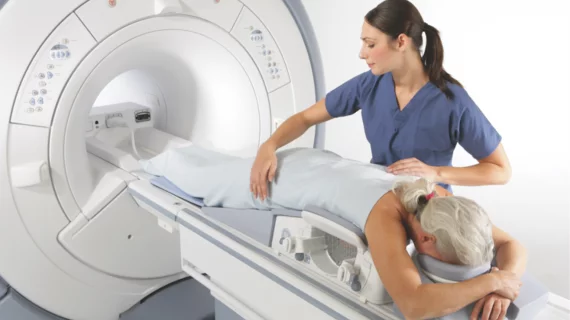Providers are requesting fewer preoperative MRIs for breast cancer patients
Providers are requesting fewer preoperative MRI exams for breast cancer patients, but a new analysis suggests more can be done to align with evidence-based guidelines.
In 2016 the American Society of Breast Surgeons published “Choosing Wisely,” which opposed the preoperative use of MRI in breast cancer patients. The document cited multiple concerns with the practice—increased need for biopsy, delays in care, and false positives causing anxiety in patients who would consequently be more likely to request unnecessary mastectomies.
Since that article was published, examining the clinical necessity of these MRIs has remained in focus, and a new analysis published in the October issue of the American Journal of Surgery reviews the latest trends in the preoperative care of breast cancer patients.
The randomized controlled trial evaluating patients undergoing breast conserving surgery was conducted between 2016-2018. In all, 396 patients with stage zero to stage three breast cancer participated. Twenty-six surgeons (10 female, 16 male) took part in the study. The only requirement was that patients needed to have had a mammogram. Otherwise, no imaging obligations were cited.
Out of 396 patients, 129 underwent a preoperative MRI. Younger patients, having what were considered to be more invasive tumors, and undergoing neoadjuvant chemotherapy were all linked with an increased likelihood of having a preop MRI. In addition, female surgeons performed 53.8% of the cases and were three times more likely to order scans than male surgeons (39.9% vs. 24%, respectively). During the two-year study, there was a significant decline in preoperative MRI requests by surgeons, specifically among females.
“Given the significant cost and sequelae of preoperative breast MRI, a selective approach is warranted, and continued physician education can likely play a key role in modifying practice patterns,” wrote Anees B. Chagpar, MD, MBA, with Yale University School of Medicine, and co-authors. “Broad dissemination of guidelines, such as those of the Choosing Wisely campaign, in the community may help in this effort, as may other efforts that incentivize physicians to embrace evidence-based best practice."
You can view the detailed results of the study in The American Journal of Surgery.

